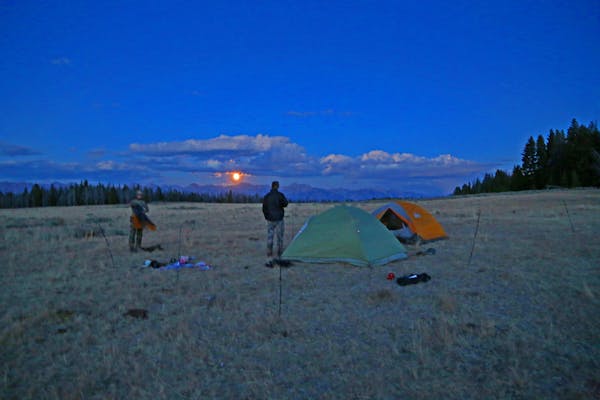KANDIYOHI COUNTY – Saturday began on a high note when the first song up on the truck radio was Ray Charles' "What'd I say." This was just after 6 a.m. I had three dogs with me, Griz, Millie and Allie, each a Labrador, and after they had had their morning runs and been fed, and been loaded into the truck, I drove to a restaurant on the edge of Willmar. The Genius was on the radio and everyone was happy, the dogs and me.
Willy Smith and his son, Harry, were waiting at the eatery, and we ordered the usual. This was the first day of pheasant hunting, and the morning meal is a tradition before we start hiking for birds.
"The beans are coming out, and some of the corn," Willy said. "But the fields are really wet. It'll be a while before the harvest is done."
Willy, of Willmar, and I were lucky that Harry, already a college graduate at age 20, was home temporarily to give us a third gun in the field. The size of our opening day crew has dwindled over the years. Some have moved to distant parts, while others are on their own private injured reserve lists for reasons ranging from wimpy to worrisome. But there you have it.
We wouldn't be hunting the state's pheasant hot spots Saturday, including country from Albert Lea west to Worthington; the far west, near Lac qui Parle; the Montevideo area; and also a wide belt around Marshall. We would instead hunt in Renville and Kandiyohi counties — places where we felt we could scratch out a bird or two, while seeing few hunters.
Our report reflects in ways the DNR's 29 percent August roadside-count increase from 2015. We weren't overwhelmed with birds. But while hunting mostly public land, the 10 or so pheasants we flushed by early afternoon, including three roosters — one of which fell to Harry's 12-gauge — bested the number we put up a year ago in the same region by, well, 10.
Other reports were mixed. Scott Rall of Worthington said some hunters found birds, while others did not. Ditto for scattergunners at the Montevideo-based Governor's Opener, a bright spot of which was Lt. Gov. Tina Smith's downing of a rooster.
Further north, Stearns and Pope counties favored the efforts of at least one bunch, including Bob St. Pierre, a German shorthair aficionado and Pheasants Forever's marketing vice president. By late afternoon Saturday, his group of five had seven birds.
Doubtless, hunters who chased birds until sunset Saturday picked up still more pheasants as they flew back into grassy areas to roost for the night, after feeding all day in corn and soybeans.
The day was warm, however, in the low to mid-60s, and many dogs, among them Millie, Griz and Allie, were bushed before day's end.
"The good news," Willy said, "is that bird numbers are up."
The better news is that Minnesota pheasant hunting should be good to very good once the harvest is complete.
Ray Charles would put it differently.
"Baby," he would say, "it's all right."

Gophers women's basketball dominates UMass Lowell for 3-0 start
Already missing Mitchell, Gophers could be without Garcia on Wednesday, too

How Zoll worked to become the seventh general manager in Twins history

Reusse: Outgoing Twins President St. Peter was always right for the job

